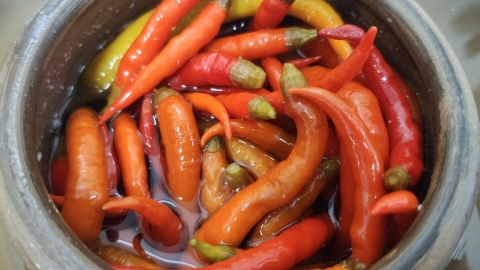What foods should be avoided after receiving a rabies vaccine?
Generally, during the period of receiving rabies vaccinations, one should avoid consuming foods such as chili peppers, strong alcoholic beverages, concentrated tea, raw foods, garlic, and similar items. These foods may stimulate the body or interfere with the immune response, potentially affecting the vaccine's effectiveness or worsening post-vaccination discomfort. Detailed explanations are as follows:

1. Chili Peppers: Chili peppers are hot in nature and contain capsaicin, which has a strong stimulating effect. Consuming them during the rabies vaccination period may trigger inflammatory responses in the body and could exacerbate redness, swelling, and pain at the injection site. It may also interfere with the immune system's normal response to the vaccine.
2. Strong Alcohol: Such as white spirits or high-alcohol beers, which contain high concentrations of alcohol. Alcohol can stimulate both the nervous and immune systems, potentially weakening immune function, affecting the production of antibodies induced by the vaccine, and possibly intensifying post-vaccination symptoms such as fatigue and dizziness.
3. Concentrated Tea: Strong tea contains large amounts of caffeine and theophylline, which have stimulating effects. These components may excite the central nervous system, leading to mental tension and poor sleep quality. Sufficient rest is crucial for optimal immune function and thus for ensuring the effectiveness of the vaccine.
4. Ginger: Ginger is warm in nature and pungent in flavor; excessive consumption can be irritating. Eating too much ginger during the vaccination period may cause internal heat and worsen localized discomfort after vaccination, potentially causing minor interference with the immune response.
5. Garlic: Garlic is also warm in nature and spicy in flavor; excessive consumption may strongly irritate the body. Too much garlic might irritate the gastrointestinal mucosa, affect the body's immune balance, hinder the vaccine's effectiveness, and even intensify post-vaccination discomfort.
In daily life, in addition to adjusting your diet to support vaccination, it is important to ensure adequate sleep and avoid staying up late. Keeping the injection site clean and dry, and avoiding contact with water to prevent infection, can also help the body mount a better immune response.




